School of Information Technology
Bachelor of Computing
Qualification / Course Information
Minimum Duration:
3 Years
Minimum Credits:
370
NQF Level:
7
SAQA:
123425
MODE:
Contact Learning
CAMPUS:
Centurion (Pretoria), Durbanville (Cape Town) & Musgrave (Durban)
LANGUAGE:
English
QUALIFICATION OVERVIEW
With information and communication technology (ICT) evolving ever faster, accompanied by new paradigms involving more complex algorithms, optimized programming, and greater execution efficiency, the need for computer scientists who can understand and are able to leverage the latest technology and paradigms grows daily. Being able to write code is no longer a sufficient basis on which to leverage the continual hardware improvements and algorithmic advances. The following quote alludes to this continually changing workplace for computer scientists.
“Computing is usually viewed as a technology field that advances at the breakneck speed of Moore’s Law. If we turn away even for a moment, we might miss a game-changing technological breakthrough or an earth-shaking theoretical development.” The aim of the Bachelor of Computing programme (which leads to an NQF level 7 qualification) is to provide a good theoretical and practical basis for working in the ICT industry and a solid foundation for future learning, which is inevitable in this evolving field. The knowledge that students obtain from this degree would benefit numerous ICT professions, including application and systems software development, database administration, systems analysis, software testing, big data analytics, machine learning implementation, and many more.
Entry Requirements
THE ADMISSION CRITERIA FOR THE BACHELOR OF COMPUTING ARE:
-
a Senior Certificate (SC) with degree endorsement and a minimum symbol of E in Mathematics HG, or D in Mathematics SG; OR
-
a National Senior Certificate (NSC) with a minimum of 50% in four 20-credit subjects, and a minimum of 40% in English Home Language or First Additional Language, and a minimum of 50% in Mathematics or 70% in Mathematical Literacy; OR
-
a National Senior Certificate – Vocational Level 4 (NC(V)) with a minimum of 60% in three fundamental subjects including English and Mathematics; and minimum 70% in four vocational subjects; OR
- a Higher Certificate (NQF 5), Advanced Certificate (NQF 6) or Diploma (NQF 6) in the field of:
- Software engineering; OR
- Computing; OR
- A related field.
Applicants who meet all the stated admission criteria except the Mathematics requirement will be able to enrol for a STADIO Numeracy and Business Mathematics bridging programme to enable them to qualify for admission.
To find out more about alternate access routes at STADIO, please click HERE
QUALIFICATION OUTCOMES
The student should be able to:
-
Demonstrate an understanding of the theoretical foundations of computing and its relevance to everyday computing.
-
Apply computational thinking, analytical reasoning and problem-solving skills to find innovative solutions for industry problems.
-
Implement solutions using appropriate development and testing tools, including various programming paradigms and the corresponding programming languages.
-
Apply appropriate mathematical and statistical concepts and skills to interpret and analyse data.
-
Implement secure computing principles and techniques to identify and evaluate potential risks affecting the security of software applications and the ICT infrastructure.
-
Use existing knowledge of fundamental programming constructs in a variety of imperative and functional programming languages to facilitate the learning of new programming languages.
-
Conduct research to understand new algorithms, tools and techniques to address the challenges of emerging technologies and methodologies.
-
Apply awareness of the ethical and cultural values in designing, implementing and using ICT applications.
QUALIFICATION CURRICULUM
1st YEAR MODULES
-
Computational Thinking and Introduction to Programming
-
Data and Decision-making
-
Discrete Mathematics
-
Electronics for Computing
-
Fundamentals of Information Technology
-
Introduction to Databases
-
Object-Oriented Programming
-
Software Engineering
-
Statistics
-
Technology and Society
2nd YEAR MODULES
-
Advanced Programming and Algorithm Analysis
-
Automata and Formal Languages
-
Computer Architecture
-
Computer Networks
-
Fundamentals of Data Analytics
-
Introduction to Operating Systems
-
Object-Oriented Analysis
-
Web and Mobile Development
ELECTIVE
-
Cloud Computing OR Foundations of Data Science OR Information Systems Project Management OR Object-Oriented Design OR Virtual Systems and Services
3rd YEAR MODULES
-
Information Security and Cybersecurity
-
Integrated Research Project
-
Introduction to Artificial Intelligence
-
Programming Language Implementation
-
Programming Paradigms
-
Research Methodology
ELECTIVE
-
Advanced Data Science and Machine Learning OR Introduction to Parallel Computing
WHAT TO STUDY NEXT
FURTHER STUDY OPPORTUNITIES:
Graduates of the Bachelor of Computing will be equipped with practical skills and critical knowledge at NQF level 7, which will enable them to pursue Postgraduate studies in more specialised ICT areas. This will expand their knowledge base and ensure their employability and relevance in industry. As they move forward in their careers, many graduates will move into postgraduate diplomas aimed at business-related fields.
CAREER OPPORTUNITIES
Below are some key career opportunities that you may consider once you have completed this qualification:
-
Application Developer
-
Software Engineer
-
Data Analyst
-
Machine Learning Practitioner
-
AI research Assistant / Developer
-
Systems Analyst
-
Data Scientist
-
IT Consultant
-
ICT Security Analyst
